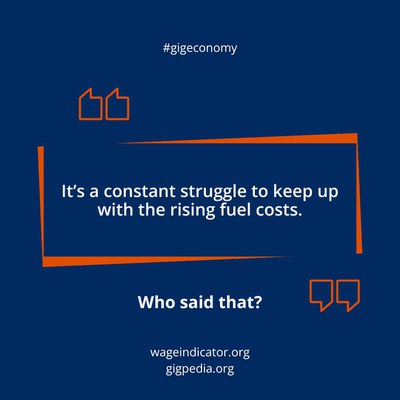
Dear reader,
Remarkable events have already occurred in the Latin American regulatory landscape this year.
The year began with a significant start in Argentina and Chile.
A few days after the elections, the Argentine judiciary suspended the labour reform included in the Decree of Necessity and Urgency (DNU) signed by Javier Milei's government.
As the Decree aimed to change or abolish hundreds of existing economic rules in order to liberalise the system massively, the CGT (General Confederation of Labour) appealed, and thousands of people took to the streets in protest.
Among the most controversial changes are the restriction of the right to strike and the amount of severance pay.
If the Decree comes into force, it would establish new foundations for the Argentine labour market, including the gig economy.
In a context where platforms such as PedidosYa and Rappi are advocating for a more flexible labour framework, some experts argue that the DNU would benefit companies rather than workers. Workers complain that the status of “colaboradores” (collaborators) conceals a disguised relationship of dependency.
Upon closer examination of the Decree, it is evident that the DNU proposes significant changes, including the removal of penalties for companies that have withheld workers' contributions and the elimination of the presumption of an employment contract when issuing invoices as a single taxpayer. Additionally, the right to strike may be recognized as a valid cause for fair dismissal.
Several legislative attempts have been made in recent years to improve the conditions of platform workers. However, none of these attempts have yet been successful.
While workers are fighting for the recognition of their basic rights, experts argue that the DNU would reduce labour costs associated with dismissals, eliminate fines for unregistered or under-registered employment, as well as penalties for delayed severance payments.
The platforms argue that it should be easier to create jobs in Argentina, but currently, trade unions are an obstacle to this process.
Despite the platform's support, the court acknowledged the concerns raised by the CGT regarding the socially vulnerable status of workers affected by the DNU. The court established that the decree lacks the necessary requirements of urgency and necessity to justify its application outside the standard legislative process.
The government announced that it would appeal the ruling, citing a perceived pro-union bias among the judges.
Meanwhile, Uber is conducting a strong offensive against the so-called Ley Uber in Chile.
Law 21.553, which regulates the activity of mobility applications such as Uber, Didi, and Cabify, is set to come into force on January 19.
Uber managers have expressed their rejection of the law, stating that 88% of trips made in Chile will no longer be available due to non-compliance with regulations in some regions. Academic studies have confirmed this prediction.
One of the most controversial measures is the requirement that drivers have a minimum displacement of 1.4 liters for internal combustion engine vehicles.
According to the regulation promulgated in April 2023, drivers are required to possess the same professional license as taxi drivers and must be registered in an electronic registry maintained by the Undersecretariat of Transportation.
During the first six months of the regulation's entry into force, only vehicles with a maximum age of seven years can be registered. After this period, the restriction will apply only to new vehicles.
Similar regulations have already been implemented in other countries. The main debate should focus on the labour dynamics generated by the platform economy.
According to Fairwork researcher Arturo Arriagada, the current discussion on the Ley Uber overlooks the working conditions and employment dynamics of those providing the service. While the platform economy offers more jobs, flexibility, and independence, it also brings various forms of precariousness.
None of these issues are under debate when discussing the Ley Uber, and this represents a missed opportunity. Arriagada highlights that the platform model is expanding to different markets and public services. There is a risk that platforms may gain even more negotiating power.
The Ley Uber should be just the beginning of a much longer discussion. As per data collected by the National Institute of Statistics, as of August 2022, 200,000 Chileans use platforms to work. 10% of them operate in the transportation and delivery sectors.
New regulations may lead to an increase in the amount of information available about these markets and their forms of employment. However, we agree with Arriaga when stating that “Oversight is necessary for these companies, not only in terms of the services they provide but also in relation to their automated decision-making processes. This is especially important if they are going to become a source of income for a significant number of people in Chile.”
If you are interested in learning more about the platform economy in Latin America, sign up for Economía Gig, the WageIndicator newsletter that collects news from the region and shares good practices for the benefit of workers.
Have a nice day,
The WageIndicator Gig Team
UPCOMING GIG WEBINAR
Our next Gig Work event is scheduled for 22 March 2024 and will focus on the redistribution of work for freelancers around the world.
Platforms are increasingly becoming the gateway to work for freelancers, especially for those in the Global South who are seeking to enter the international labour market and have limited opportunities elsewhere.
We'll examine the opportunities for freelancers in the Global South and encourage debate by learning from the context of these developments.
The topic selection is not casual: the webinar will be broadcast live from Pune, India, where the International Conference on Corporate Social Responsibility and Decent Work in the Era of Sustainable Development Goals will be held from the 21st to 23rd of March 2024.
There is no longer a trade-off between an economy that grows and an economy that helps people thrive. To assess how corporations can place decent work at the centre of agendas even in the global platform economy, WageIndicator and FLAME University are organising a conference that aims to advance both discourse and action on corporate responsibility.
Learn more about the conference
More updates are coming soon!
CALL FOR PAPERS!
The gig economy is notoriously hard to regulate. But it's clearly going to be a big part of our future, so how do we make it better?
If you have ideas, case studies, or research on enabling decent work in the gig economy, submit your proposals for papers or special sessions and join our conference in March 2024.
The deadline for submitting your proposal is January 25, 2024.
WHAT’S NEW ON GIGPEDIA
From Ouishare to WorkerTech: A Look Back and Forward at Platforms and the World of Work
"The idea that a job always has to be 40 hours a week is outdated. Part-time, flexible, or freelance work sometimes fits better with all the other pursuits in modern life, for example, volunteering or taking care of our family."
After starting the first Spanish blog on the sharing economy in 2011, Albert Cañigueral Bagó came into contact with the organisation Ouishare, an international partnership of freelancers. Today, he explores platforms and their impact on people and society.
Platform expert Martijn Arets talks to him in the latest episode of The Gig Work Podcast.
"Platforms provide structured access to fragmented and often invisible work," he explains. "But if the conditions in doing so are not clear or if you cannot influence them, you feel like a slave to the platform."
How did the sharing and gig economy develop? And what impact does technology have on workers now and in the future?
If you missed any podcast episodes, you can find them in the Podcast section on Gigpedia.

Ghana - Ride-hailing drivers have threatened to embark on a nationwide strike to protest the recently introduced Vehicle Income Tax.
India - Truck drivers' strikes and petrol shortage are affecting food delivery workers and their livelihoods, with no assistance from the platforms they work for. Workers protested and demanded support.
Italy - In June 2023, Uber Eats ceased operations in the country. The Labour Court of Milan ruled that the dismissals of 4,000 riders were illegitimate. However, unions have reported that these riders are still unemployed.
South Africa - The Public Private Transport Association suggested the government take on regular checking of ride-hailing drivers in the place of the platforms to reduce reports of customers being robbed or harassed.
US - At the end of December, many Lyft drivers complained they couldn't withdraw money from their accounts.
Did you know? A new academic study focusing on underemployment in the United Kingdom shows how women, younger workers, workers with lower qualification levels, and those from ethnic minorities struggle to get enough work, including in sectors such as retail, hospitality, and health and social care.
Since the launch of the gig economy globally, unpaid labour and the inability to find enough work to earn a decent income have been common issues among digital platform workers.

Hong Kong - The Competition Commission has agreed that foodpanda and Deliveroo will provide restaurants with greater flexibility to switch to competing delivery platforms. This is in line with both companies' commitment to adjusting their contracts and meeting regulatory requirements.
Did you know? Gig platforms have mushroomed in Indonesia in the past decade. Unfortunately, regulations governing the app-based sector have struggled to keep up with this growth, and workers suffer from a lack of protection.

Hong Kong - Since debuting last May, Meituan has become the second-largest food delivery platform, with foodpanda in first place.
India
- BluSmart, a fully integrated EV ride-hailing service, has raised 24 million dollars in a new equity round.
- Uber is developing 'Uber Flex', a feature that allows users to set their preferred fare.
- Uber witnessed a 54.46% increase in its revenue which crossed Rs 2,600 Cr during the fiscal year ending March 2023, but the firm’s losses rose 57% during the same period.
Did you know? The Karnataka government in India is planning to launch its own ride-hailing application by February 2024, which will be similar to Ola and Uber.
Jordan - A crowd of drivers of ride-hailing apps staged a protest in front of the Ministry of Transport in Amman, calling on better supervision of the platform activity.
South Africa - Uber Eats has expressed interest in finding solutions to assist restaurant partners who experience power outages during load-shedding. Long power outages can negatively impact platform workers and small businesses, leaving them unable to work due to connectivity issues.
Spain - In the Spanish market, Cabify incurred losses of 4.9 million euros in 2022.
US- inDrive is exploring the possibility of offering financial services like small-term loans to drivers and delivery riders.
Vietnam - With the announcement of the liquidation of subsidiaries in Vietnam, Zomato has now exited ten markets in less than a year.

France - A dozen undocumented Uber Eats and Deliveroo delivery workers were arrested in Grenoble and held in custody for 24 hours. All of them have been released but are now forced to leave the country.
The CGT condemned the operation and sided with these “shadow workers.”
India - Women in the ride-hailing sector daily struggle with safety issues and sexism. According to them, platforms are not offering the necessary assistance.
Nigeria - The ride-hailing industry has recorded significant profits in recent years. Still, rising inflation is severely affecting drivers and passengers, threatening to limit business growth.
Spain - Cabify workers in Madrid went on strike after the company failed to reach an agreement with SLT, the major union in the VTC sector. The strike is set to continue throughout January. According to the union, the platform does not recognize all the workers' working hours and does not pay overtime.Vietnam - Cash on delivery is a common practice for online orders in the food delivery sector; however, workers are vulnerable to fraud when customers make it impossible for riders to find them after the order.
Vietnam - Cash on delivery is a common practice for online orders in the food delivery sector; however, workers are vulnerable to fraud when customers make it impossible for riders to find them after the order.


